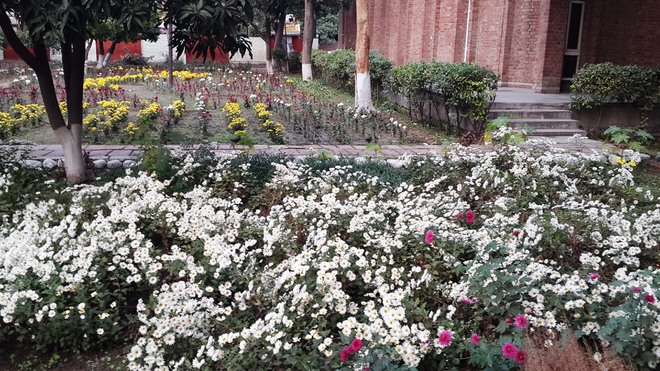Practising farming organic way
Neha Saini
Tribune News Service
Amritsar, April 7
Amid concerns of dwindling groundwater level, rising consumption of chemical fertilisers and reducing agriculture productivity, natural and organic farming techniques have proven their worth. As Prime Minister Narendra Modi, during his visit to Hussainiwala, had highlighted that the over exploitation of the natural resources had caused environmental degradation, some residents have taken up the responsibility of spreading the message of natural farming.
Rajesh Khanna, a leading entrepreneur of Amritsar, has introduced the concept of polyhouse farming in the city and its surrounding areas. Khanna’s One Care farm near Ajnala, which began as an experiment, has become a mission. “I am not an agriculturist but I was aware of the drawbacks. I planned to set up a farm as an experiment to educate local farmers about the natural farming techniques,” he said.
After a year, Khanna has managed to surprise others with the produce. “We produced tomatoes, cucumber and other vegetables without the use of pesticides. Polyhouse farming is a unique concept. Those who say that it is a costly method should know that it is the natural way of growing crops,” he says.
The polyhouse farming is also supported by the National Horticulture Ministry for its environmental benefits. Another example of organic makeover is the heritage garden of Bhai Veer Singh Niwas Sthaan at Lawrence Road. Situated on the busiest route in the city, the garden is home to centuries old trees, which were revived and now bear several seasonal fruits like chockoo, jackfruit, walnut and mango.
The space dedicated to the teachings and principles Bhai Veer Singh, who was a natural lover, uses natural methods like composting and there is no use of pesticides.
“It is one of the best examples of successful organic farming and the significance of place is such that flowers from the garden are given to the Golden Temple every morning, continuing the tradition started by Bhai Veer Singh,’ says Gunbir Singh.
Gunbir is also the chairman of the World Wildlife Fund, Amritsar, and has a kitchen garden of his own. “Applying the concept of vermicomposting, the manure is prepared through the kitchen waste. We have been promoting the concept among the citizens and several of our volunteers have successfully converted their homes into small organic farms,’ he says.










